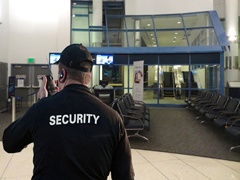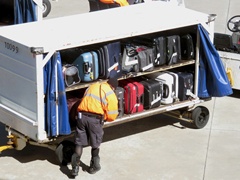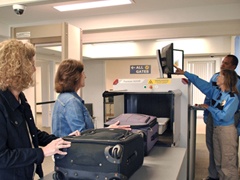 What does it mean to have strong aviation security culture? A strong aviation security culture is one in which security is a top priority for all staff. It means that security can never rest at the back of our minds; it must constantly be at the forefront. It also means that security cannot be an afterthought; it must be approached with a proactive mindset.
What does it mean to have strong aviation security culture? A strong aviation security culture is one in which security is a top priority for all staff. It means that security can never rest at the back of our minds; it must constantly be at the forefront. It also means that security cannot be an afterthought; it must be approached with a proactive mindset.
If we lose sight of the importance of aviation security for a moment, we risk becoming vulnerable to the imminent dangers that constantly pressure our industry. Security is everybody’s business. So, what can you do to build a strong aviation security culture within your company?
It Starts From The Top
 It’s not easy to start a movement. Top management must be willing to champion the idea of a strong security culture. They must establish clear goals and ensure all personnel understand the importance of being security-minded. Management must set the tone by being an example and providing support throughout the transition process and thereafter. When top management sets the stage for a strong culture of security awareness, the rest follows easier.
It’s not easy to start a movement. Top management must be willing to champion the idea of a strong security culture. They must establish clear goals and ensure all personnel understand the importance of being security-minded. Management must set the tone by being an example and providing support throughout the transition process and thereafter. When top management sets the stage for a strong culture of security awareness, the rest follows easier.
In order to have the best chance of success, management must have as many staff onboard as possible. From top management all the way down not only applies to staff with security duties; it applies to all staff including café workers, custodial staff, maintenance personnel, baggage handlers, etc. We cannot achieve the results and service levels we want without working in partnership with all other organizations. Vigilance is important and there can never be too many eyes and ears to report suspicious activities.
Always Be On Alert
It’s true that while some countries may be at a higher risk of attack than others, it would be naïve to think certain countries are at no risk at all. At any moment, any airport or facility in any country could be the target of the next attack. Attacks can be carried out for a number of reasons and there’s no telling how and when it may happen.
There is also a belief that landside is most susceptible to attacks, while airside is not vulnerable at all. Being on an airport’s airside does not automatically mean people are safe. Despite having security controls in place, it is possible for a threat to slip through. In addition, insider threats may have knowledge to circumvent current security systems. That’s why it’s important to always be on alert.
Keep Training Up To Date
 Another important element of strengthening your company’s security culture is to keep personnel mindful of the role they play in security. With comprehensive, continual training, this is possible. That’s why it’s imperative to re-evaluate your current security training on a regular basis to ensure it fulfills all of your training needs.
Another important element of strengthening your company’s security culture is to keep personnel mindful of the role they play in security. With comprehensive, continual training, this is possible. That’s why it’s imperative to re-evaluate your current security training on a regular basis to ensure it fulfills all of your training needs.
When your training emphasizes the importance of being vigilant, incorporates the latest industry threats and concealment techniques, and is available for training and practice year round, personnel have a better chance of succeeding on the job. Strengthening human capital (knowledge, skills, and experience) from an aviation security perspective is critical.
